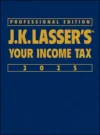Forced Sale of Jointly-Owned Property Allowed for One Owner’s Debt
A person’s failure “to pay any tax” after the government’s demand for payment creates “a lien in favor of the United States upon all property and rights to property, whether real or personal, belonging to such person.” But what happens if the property of such person is jointly owned with another who doesn’t owe tax? A district court asked this question said it was permissible for the government to proceed with a forced sale (David Scott Dase, DC-AL, 2/27/20).
The case involved a brother and sister who inherited property from their father. Each held a one-half interest, although only the brother and his spouse lived on the property. The sister hadn’t lived there since she was a child. The brother made all the mortgage payments and eventually paid off the mortgage in full. The government obtained a default judgment against the brother for more than $290,000 in federal employment taxes, unemployment taxes, a civil penalty, plus statutory fees and interest. As a result of the default judgment, the government has a lien on the property, which permits a decree of sale and a distribution of the proceeds.
In permitting the sale to proceed, the district court had to consider the impact on a third party…the sister. The court evaluated four established factors in determining that the impact on the sister did not overcome the government’s interest in a forced a sale:
- Factor 1: The extent to which the government’s financial interests would be prejudiced if it were relegated to a forced sale of the partial interest actually liable for the delinquent taxes, here the brother’s interest. If the government had to sell the brother’s one-half interest in the property while allowing the sister to keep her half, it would end up with less than if the entire property were sold and the proceeds were divided in half. Thus, a sale of the brother’s interest alone would prejudice the government.
- Factor 2: Whether the third party with a non-liable separate interest in the property would, in the normal course of events, have a legally recognized expectation that that separate property would not be subject to forced sale by the delinquent taxpayer or his or her creditors. This factor weighs in favor of the government because under state law (Alabama), a joint owner can force a partition or sale of the property (the sister could have forced this as well if she choose to do so).
- Factor 3: The likely prejudice to the third party, in the form of personal dislocation costs and inadequate compensation. Here the sister didn’t live on the property and would receive half the proceeds, so this factor weighs in favor of the government.
- Factor 4: The relative character and value of the non-liable and liable interests held in the property. If the third party has no present possessory interest or fee interest in the property, there may be little reason not to allow the sale. Since only the brother lived on the property and he paid the mortgage, this factor weighs in favor of the government.
Bottom line: All factors support a forced sale of the entire property by the government to recoup some of the taxes owned by one of the joint owners of the property.
Straight-line method
A method of depreciating the cost of a depreciable asset on a pro rata basis over its cost recovery period.



